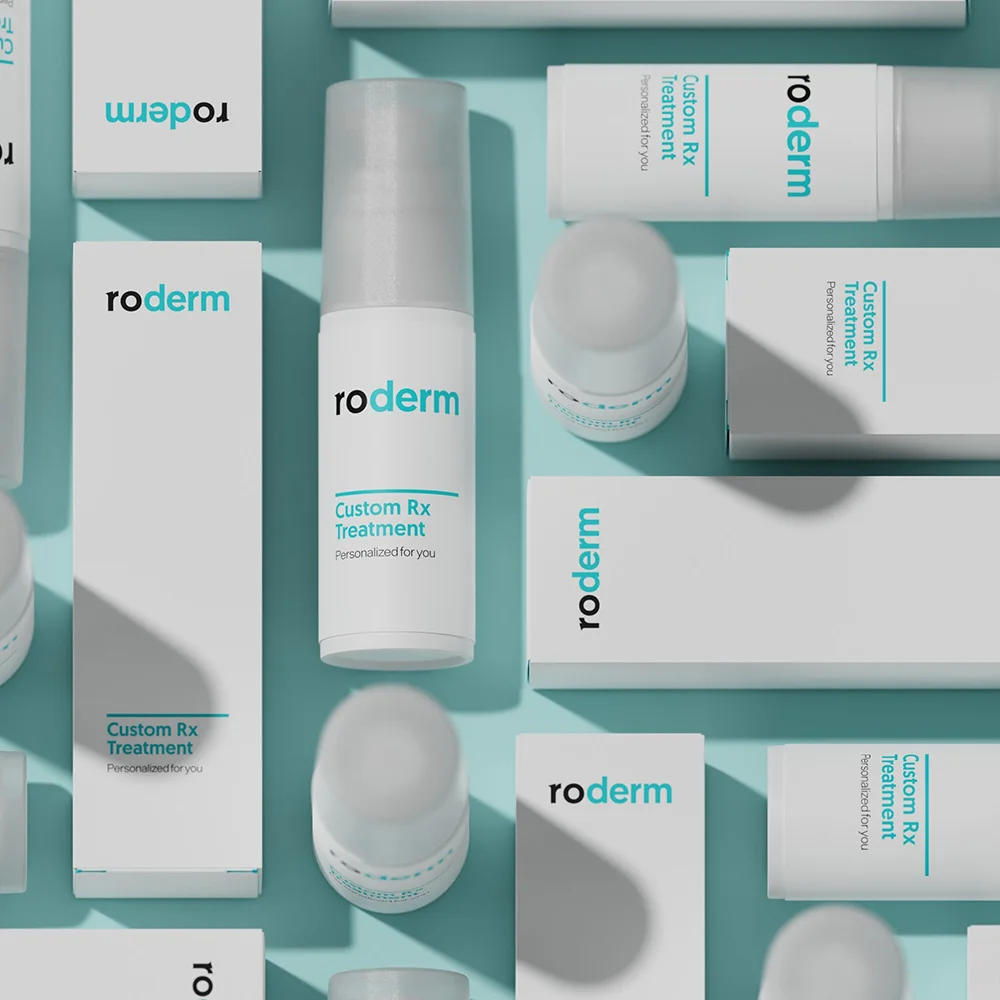Here's what we'll cover
Here's what we'll cover
Here's what we'll cover
Acne can be distressing, especially as an adult when you think you should be past those pesky skin blemishes. If you have persistent acne, there’s a chance it may be one of the only outwardly noticeable symptoms of PCOS or polycystic ovary syndrome, a hormonal disruption that can have a range of effects on your health, well-being, and even your future fertility.
When it comes to PCOS and its various symptoms, the real challenge is reaching a diagnosis. Once you have one, there is a wide range of treatments available to help you manage PCOS acne and any other symptoms you may have.
What is PCOS?
PCOS or polycystic ovary syndrome is a hormonal disorder characterized by disrupted hormone levels. There are many different symptoms and clinical signs of PCOS, including irregular periods, weight management issues, insulin resistance or diabetes, and excessive unwanted hair growth (also known as hirsutism). Elevated levels of androgens (the dominant male hormones typically present in lower levels in females) contribute to increased hair growth and acne. While the numbers aren't precise, research seems to show that between 20–40% of people with PCOS have acne alone, and even more may experience acne together with excess hair growth (Gainder, 2019).
How does PCOS cause acne?
During ovulation, one or more of an ovary’s follicles rupture, releasing an egg. People with PCOS have elevated levels of androgens, commonly nicknamed “male” hormones, though everyone has them. These high levels of androgens cause many follicles to develop and create an environment that prevents an egg from being released. This process causes cysts to grow on the ovaries.
Androgens cause the glands in your skin to ramp up oil (also called sebum) production. When sebum and dead skin cells build up, they trap bacteria underneath your skin. This forms pimples (Gainder, 2019). Because people with PCOS have high levels of androgens, they are often more likely to develop acne.
Most people with PCOS have acne on their faces, and up to half develop acne on the upper part of their body, including their jawline, neck, chest, and back (Gainder, 2019).
How do you treat acne caused by PCOS?
People with acne sometimes report feeling depressed, ashamed, and anxious. Treating acne, therefore, becomes crucial for both physical and mental health (Fox, 2016). There are three main treatments for PCOS acne.
Oral contraceptives
Birth control or oral contraceptive pills containing the hormones estrogen and progesterone help reduce the levels of androgens that PCOS acne (Gainder, 2019).
Birth control pills with drospirenone (Slynd or Yasmine) work well to lower androgens. Another form of birth control, cyproterone acetate (Androcur or Diane), also works well but isn’t available in the U.S. While oral contraception doesn’t work immediately to reduce acne lesions, more than half of people who take it for several months typically see an improvement in their acne (Gainder, 2019).
Anti-androgens
These medications lower the levels of androgens. Spironolactone (Aldactone) is a diuretic that is very effective against PCOS acne and other PCOS symptoms. If your healthcare provider prescribes this for you, you will start on a low dose (Gainder, 2019).
Flutamide is a non-steroidal anti-androgen medication. It is usually used to treat certain types of cancer. It may be effective for some people with PCOS-related acne (Gainder, 2019).
Your healthcare provider may prescribe a combination of these oral medications, like birth control together with spironolactone, to best suit your particular needs.
Retinoids
Consult a dermatologist if your acne isn’t improving and you need more treatment options. They may prescribe a topical retinoid cream or gel or an oral medication called isotretinoin, especially if you have cystic acne. Isotretinoin medication works well but can have severe side effects, so you will be monitored while taking it (Fox, 2016).
9 ways to manage PCOS acne
Taking the medications prescribed by your healthcare provider can decrease high androgen levels. Although a hormonal imbalance is the main cause of PCOS acne, you’ll also benefit from taking care of your skin to prevent break-outs. You may want to incorporate these nine lifestyle changes to keep your skin as pimple-free as possible (Sutaria, 2020).
Keep your skin clean without scrubbing. Wash your face with a gentle pH-balanced cleanser before bed and when you wake up.
Keep your hands off your pimples: don’t touch, squeeze, or pop your pimples. Doing this may drive the bacteria deeper in, worsening your acne or leaving a permanent scar.
Modify your diet by adding fruits and vegetables and avoiding dairy, spicy foods, soda, chocolate, and junk foods.
Try a low-glycemic, high protein diet. Some people with acne have found this diet has helped decrease their acne lesions.
Add a topical acne treatment like benzoyl peroxide or salicylic acid to your skincare routine.
Decrease your stress, anxiety, and anger as much as you can. Severe emotional reactions may aggravate your acne.
Keep your hair off your face as much as possible. When you go to bed, put it up in a high bun so you don’t sleep on it.
Change your pillowcase, face, and body towel frequently to keep the bacterial load on your skin as low as possible.
You may want to consider taking a probiotic to help your PCOS. Probiotics, especially those with Lactobacillus, may help lower inflammation throughout your body and may regulate your hormones (Guo, 2016).
PCOS acne is a noticeable skin problem that may also cause emotional distress, but there are treatments that can help you looking and feeling your best. Keep your skin and diet clean to help reduce any existing lesions and prevent new ones from occurring. Speak to your healthcare provider about medical treatments to help with your acne so you feel better about your skin.
DISCLAIMER
If you have any medical questions or concerns, please talk to your healthcare provider. The articles on Health Guide are underpinned by peer-reviewed research and information drawn from medical societies and governmental agencies. However, they are not a substitute for professional medical advice, diagnosis, or treatment.
References
Fox, L., Csongradi, C., Aucamp, M., du Plessis, J., & Gerber, M. (2016). Treatment modalities for acne. Molecules (Basel, Switzerland), 21 (8), 1063. doi: 10.3390/molecules21081063. Retrieved from https://pubmed.ncbi.nlm.nih.gov/27529209/
Gainder, S. & Sharma, B. (2019). Update on management of polycystic ovarian syndrome for dermatologists. Indian Dermatology Online Journal, 10 (2), 97–105. doi: 10.4103/idoj.IDOJ_249_17. Retrieved from https://www.ncbi.nlm.nih.gov/pmc/articles/PMC6434760/
Guo, Y., Qi, Y., Yang, X., Zhao, L., Wen, S., Liu, Y., & Tang, L. (2016). Association between polycystic ovary syndrome and gut microbiota. PloS one, 11 (4), e0153196. doi: 10.1371/journal.pone.0153196. Retrieved from https://www.ncbi.nlm.nih.gov/pmc/articles/PMC4836746/
Leon, L. I. R. & Mayrin, J. V. (2020). Polycystic ovarian disease. In: StatPearls [Internet]. Retrieved from https://www.statpearls.com/ArticleLibrary/viewarticle/27400
Sutaria, A. H., Masood, S., & Schlessinger, J. (2020). Acne vulgaris. In: StatPearls [Internet]. Retrieved from https://www.statpearls.com/ArticleLibrary/viewarticle/17101






